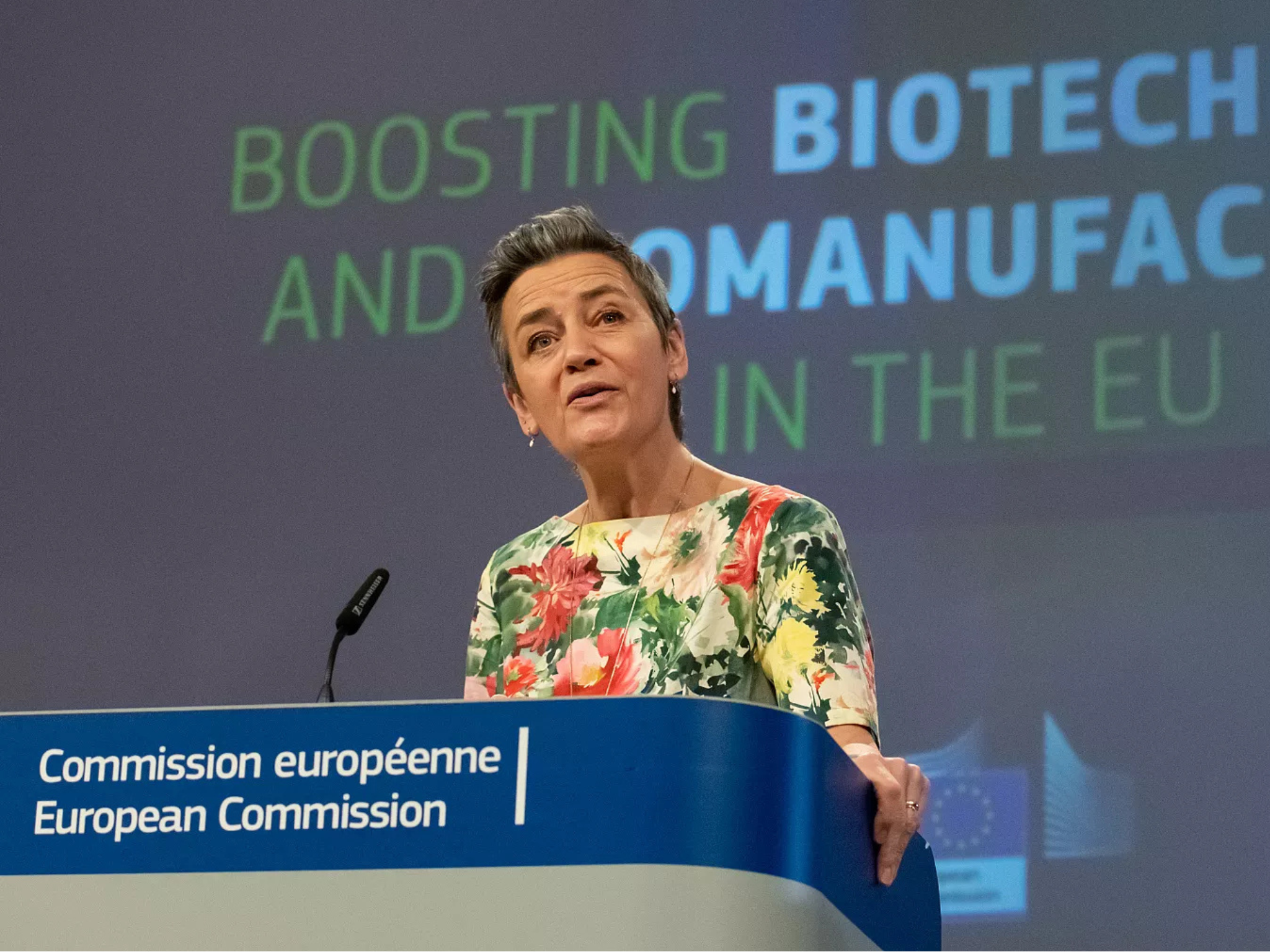
In a potentially big win for cultivated meat and precision fermentation, the EU is set to publish a document outlining its push to overhaul and fast-track novel food approval.
Novel food approval could receive a boost under a new legislation proposed by the European Commission, helping the region catch up with regulators in the US and Asia.
The executive arm of the EU is set to unveil a draft of its Life Sciences Strategy on Wednesday (July 2), which will contain details of how the upcoming Biotech Act will seek to modernise the bloc’s novel food regulation, as reported by Euractiv.
“The Commission will propose a Biotech Act to make the EU regulatory system more conducive to biotech innovation in various sectors such as health and food; and will facilitate and accelerate the approval procedures for Novel Foods,” the document reads.
It would prove a major win for stakeholders in the alternative protein and future food industry, who have long called for an overhaul of the EU’s novel food framework.
EU pinpoints precision fermentation amid need for public education

Current EU law considers any food that wasn’t consumed to a significant degree before May 1997 a novel ingredient. This includes everything from cultivated beef and precision-fermented dairy to UV-treated vegetables and certain algae-based foods.
It has already approved over 200 novel food products, and many others are waiting in the wings for the go-ahead.
The Biotech Act was first announced by Margrethe Vestager, executive VP of the EU Commission, last year, with its final publication slated for 2026. Its aim is to drive economic development via high-value job creation and greater investment, ultimately enhancing the region’s global competitiveness.
Moreover, the EU hopes to meet its environmental goals and boost food security by promoting sustainable agriculture and developing bio-based products through the act. In a briefing released last month, the European Parliamentary Research Service explained how public acceptance of novel foods and GMOs remains a “major challenge” that can “polarise opinion”.
“Effective communication with the public could emphasise that biotechnology is already integrated in daily life, with many products relying on biotech processes or components, and to already very good results – not only in healthcare, but also in areas such as soil protection, energy, fertilisers, and combating water pollution, etc.,” it said.
The current regulatory process to approve novel foods, run by the European Food Safety Authority, is too stringent and long, “hindering uptake and competitiveness” in the sector, the EU Commission argues in the draft.
One of the technologies name-checked as having transformative potential for the food industry is precision fermentation, which combines traditional fermentation with the latest biotech advances to produce proteins, fats and other compounds. It enables companies to create bioidentical dairy, egg and other proteins, sans the animal.
The EU Commission is planning the launch of an annual Food Fermentation Conference, which would connect industry stakeholders and bolster support for this technology.
Cultivated meat and Impossible Foods’ struggles reflect the complicated EU novel food landscape

The EU’s regulatory framework for novel foods is amongst the world’s most rigorous, with the complexity and timelines driving many homegrown companies to look to other markets first. For example, Dutch cultivated pork startup Meatable is targeting Singapore as its debut market, as is France’s Vital Meat. Meanwhile, precision fermentation firms Vivici, Onego Bio and 21st.Bio have all focused on the US.
Despite changes by the EFSA hinting at a shift towards an easier pathway to file for approval, the current deadlock has come to the benefit of non-EU countries in Europe. The UK began shifting away from its pre-Brexit regulations last year and is now working with several companies to fast-track approval – it has already received applications from European startups Vital Meat, Mosa Meat, and Gourmey.
In addition, the latter two startups have filed dossiers in Switzerland (and are the only ones to have applied for EU approval too). Even companies from outside Europe, like Aleph Farms, have targeted the UK and Switzerland first.
It’s not just new products untested in the market – even established ones that have found success elsewhere have struggled to get into the EU. Impossible Foods is a prime example here. While the company sells plant-based meat in the US, Canada, Singapore, Hong Kong, Australia and New Zealand, its use of soy leghemoglobin – a precision-fermented heme protein – has kept its signature alt beef lineup out of Europe for almost a decade.
The company first filed for approval of the ingredient in March 2021. Last year, the EFSA Panel on Food Additives and Flavourings issued a positive safety assessment of LegH Prep, a liquid preparation containing soy leghemoglobin and other ingredients.

This was followed by a ruling by the regulator’s GMO panel, calling soy leghemoglobin “safe for human consumption with regard to the effects of the genetic modification”. The EFSA’s opinion was then followed by a period of public consultation ahead of final approval by the EU Commission and member states. Then, in February of this year, the EFSA stated that the public comments didn’t raise any further concerns, moving Impossible Foods an inch closer to the green light.
In an interview at the Bloomberg Sustainable Business Summit in London this month, Impossible Foods CEO Peter McGuinness called the regulatory process in the EU (and the UK) “on the slow side”.
“That’s a double-edged sword,” he said. “When it comes to food and the health of people and the planet, the government should have a keen interest in that… The flip side of that is we’ve been trying for four years to get Impossible in [Europe], and we’re still not there yet. But we’re waiting patiently impatiently.”
The Biotech Act, therefore, will be keenly watched by industry leaders. It could usher in some long-awaited changes to position the EU, already a leader in R&D funding for alternative proteins, as a future food leader.
The post Could the EU’s Biotech Act Finally Break the Novel Food Approval Deadlock? appeared first on Green Queen.
This post was originally published on Green Queen.